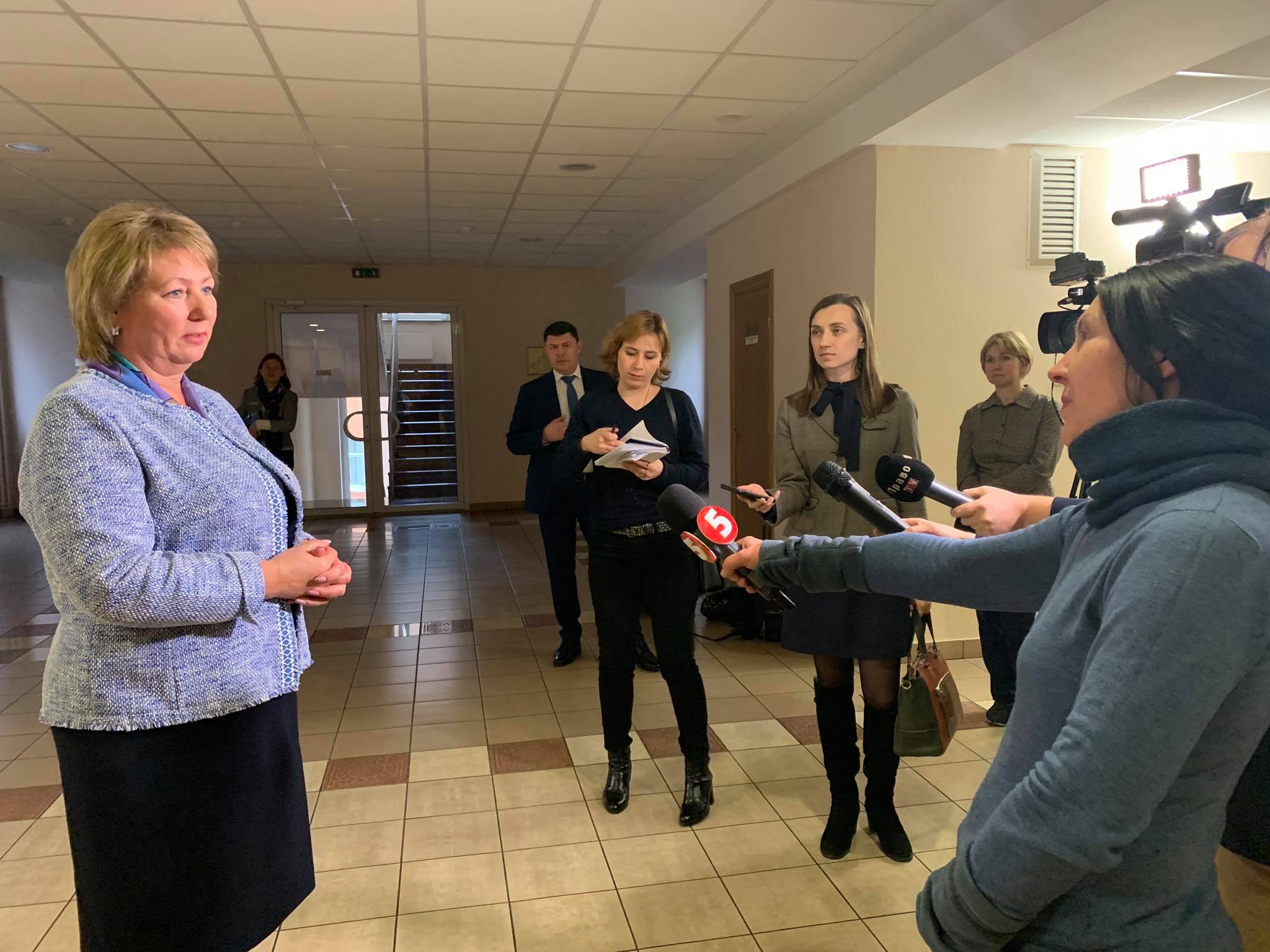Contact center of the Ukrainian Judiciary 044 207-35-46
ABOUT THE SUPREME COURT
FOR CITIZENS
ACTIVITY
PRESS-CENTER
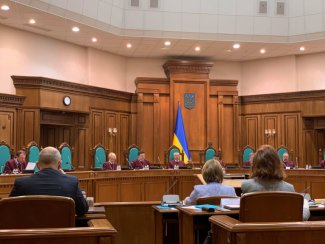
President of the Supreme Court Valentyna Danishevska put emphasis on this fact on 16 January while presenting the position of the Plenum of the Supreme Court in the course of consideration of the case under the constitutional application of the Supreme Court as for constitutionality of separate provisions of the Law of Ukraine “On the Judiciary and the Status of Judges” and the Law of Ukraine “On the High Council of Justice”.
Valentyna Danishevska remarked that the SC Plenum perceived this Law as, primarily, one, which threatens the independence of the judicial branch of power.
“We consider that unbalanced, unjustified and arbitrary interference into the activity of the judicial system signifies the factual restriction of the access to court through the destabilization of judicial bodies’ activity and weakening the capacities of the Supreme Court” – she emphasized.
Valentyna Danishevska noted: “Though the subject of the draft law was represented with the reformation of the fundamental state institution, the analysis of current situation and possible impact of this act on the judicial power had not been held”.
Besides, she underlined that the judicial power bodies – the High Council of Justice, the Supreme Court and the Council of Judges of Ukraine – reacted on the legislative initiative, provided their opinions and addressed to the Verkhovna Rada of Ukraine requesting to hold consultations; at the same time, the international partners repeatedly expressed precautions regarding the draft law and its fast adoption.
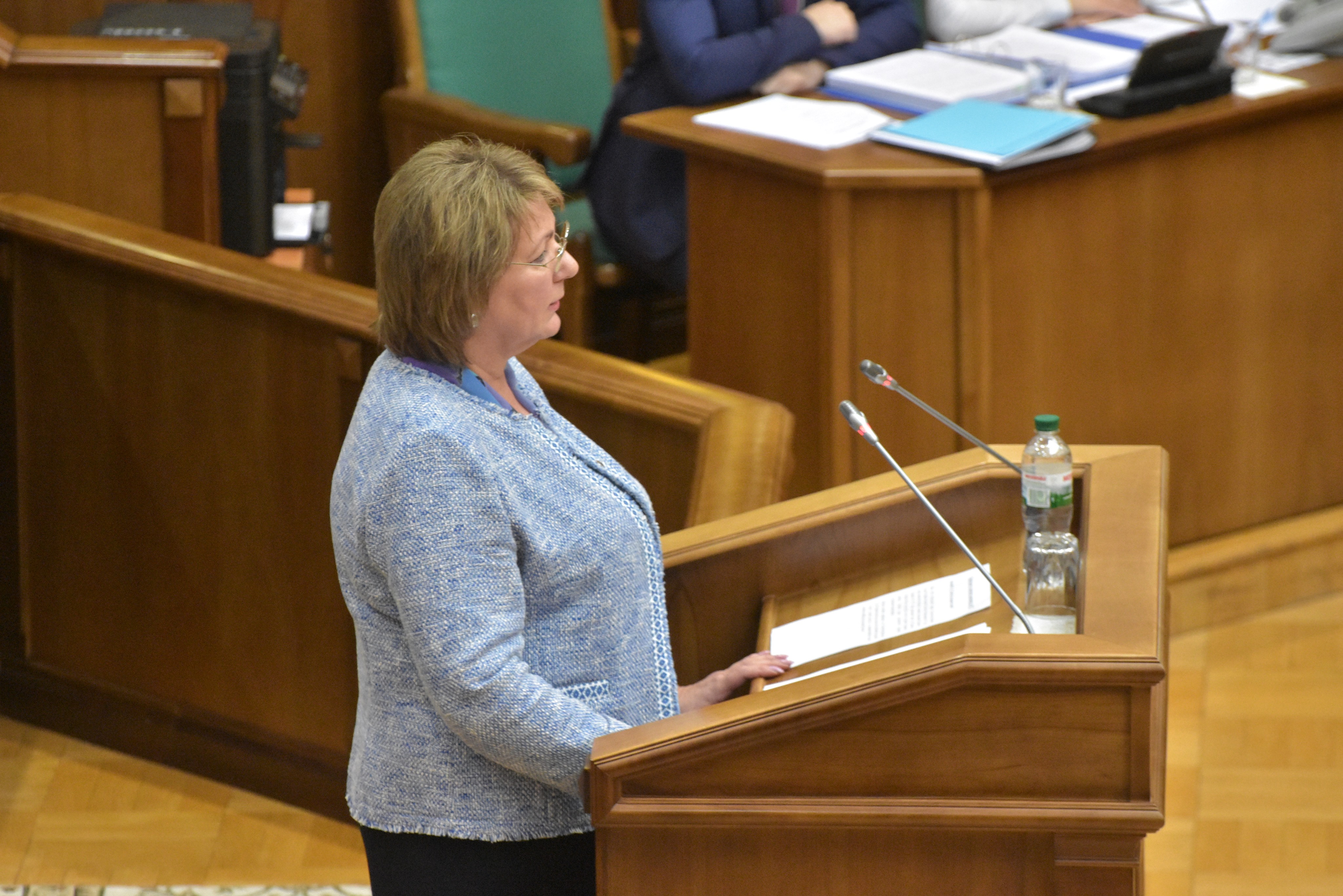
Valentyna Danishevska also told in details about negative consequences of the application, for example, of the regulation on downsizing the composition of the Supreme Court from 200 till 100 judges. It is projected that the SC work will be disrupted, and the terms for case consideration will significantly increase because of reformatting panels and chambers, the repeated distribution of cases and their consideration from the very beginning.
The SC President informed: “This regulation was adopted against the backdrop of excessive caseload of the Supreme Court. During the whole period of its activity (since 15 December 2017) the Supreme Court has received more than 250 thousand cases, and has considered 192 thousand cases. Herewith, on average, we receive 360 applications every day”.
According to the SC President, the rhetoric of authorities in their statements and interviews has clearly demonstrated their real intentions: the desire to change judges appointed by previous authorities and to make judges’ careers dependent on the will of other branches of power.
“We consider that the regulation of the Law No. 193 on the selection of judges of the Supreme Court is an “implicit dismissal”, controversial to parts 5, 6 and 7 of Article 126 of the Constitution of Ukraine, since it is not covered with any reason for the dismissal of a judge or the termination of his/her authority provided with these regulations”, – she remarked.
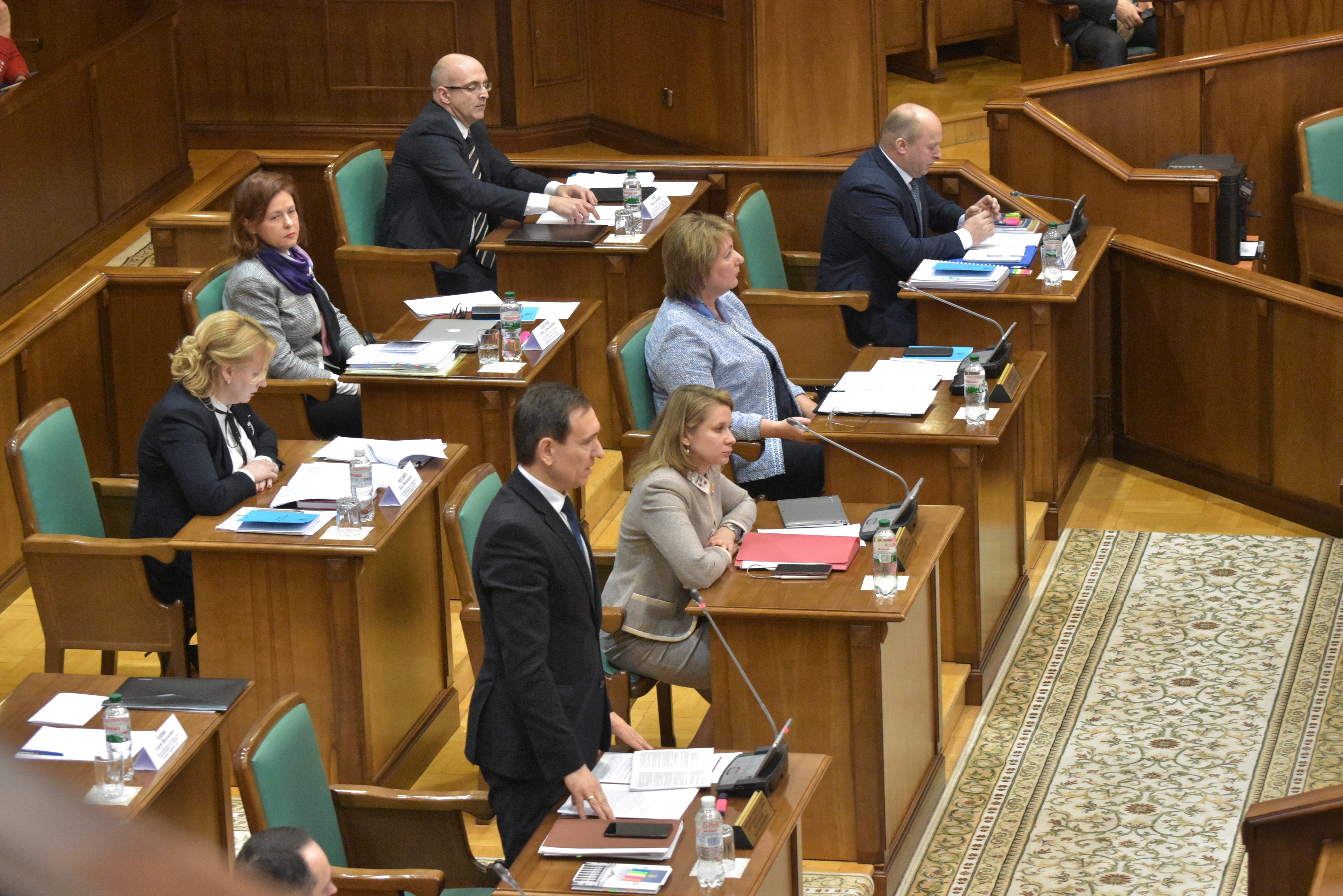
The Venice Commission in its opinion noted that nothing was more dangerous for judicial independence than giving the impression to the judges and to the general public that it is up to the discretion of the newly elected political organs of the state whether the sitting judges remain in their position or not.
“It is known, that the independence of judges is not considered as their personal privilege, it is directly linked with each individual’s guarantee of his\her case consideration by an independent and impartial tribunal within reasonable terms. The existence of independent judicial system in the state is the indicator of the rule of law”, – the SC President summarized.
President of the Administrative Cassation Court within the SC Mykhailo Smokovych presented the position of the SC Plenum regarding other provisions of the Law No. 193, which did not correspond to the Constitution of Ukraine. Particularly, he informed that the Final and Transitional Provisions of the Law provided the authority of the Integrity and the Ethics Commission for six years, since the day this law came into force, to bring judges of the Supreme Court to liability. This commission may submit an application to the HCJ on dismissal of a judge, which is controversial to Article 131 of the Constitution of Ukraine, since only the HCJ may adopt decisions on a judge dismissal.
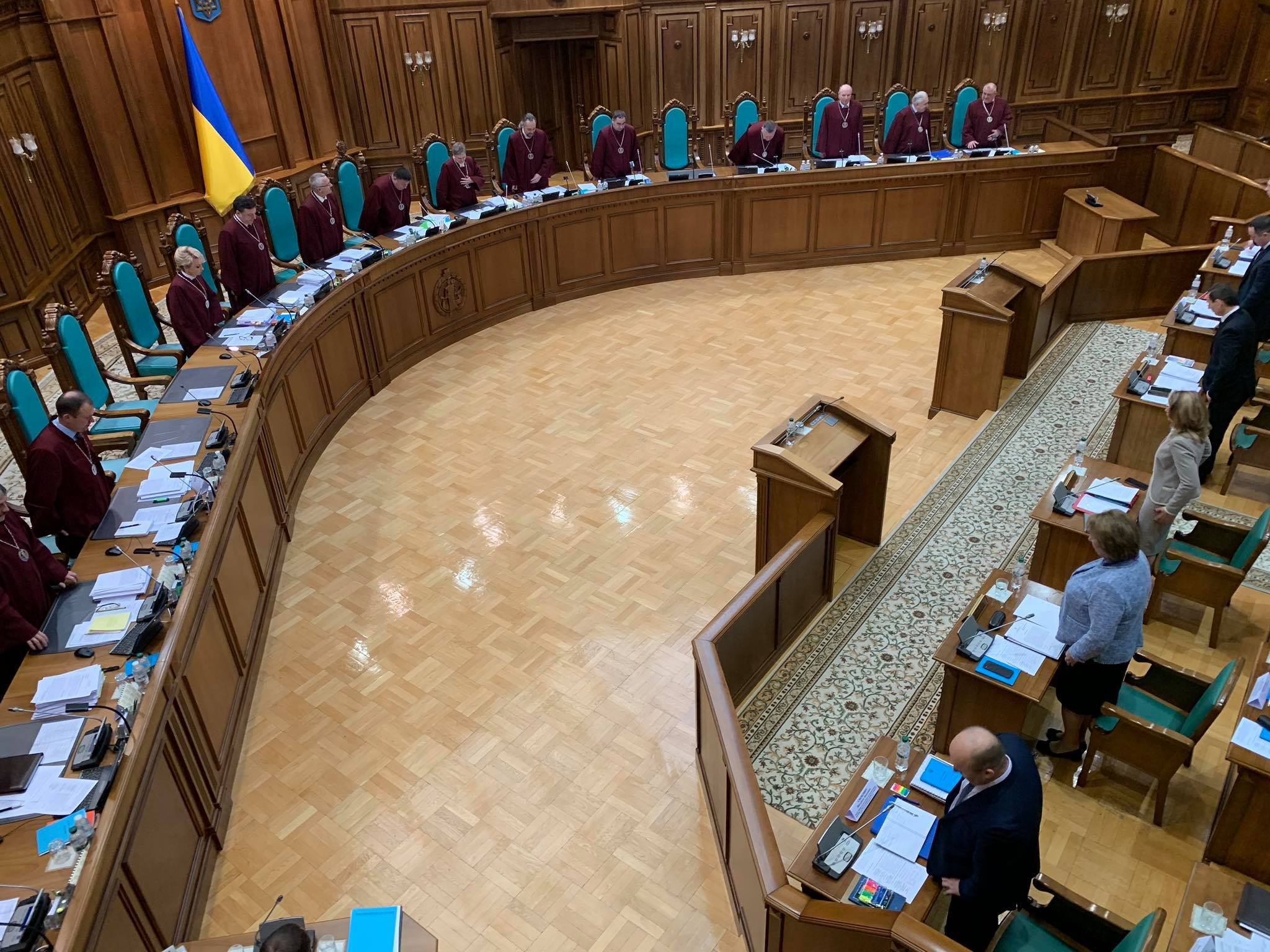
“Having analyzed separate provisions of the Law, we can conclude that the legislator, in fact, subordinates the activity of the HCJ to the Integrity and the Ethics Commission”, the President of the Administrative Cassation Court within the SC remarked.
Besides, the article of the Law regarding members of the High Qualification Commission of Judges of Ukraine does not guarantee the representative majority of judges in one of the key judicial self-government bodies for the judicial system.
Mykhailo Smokovych underlined: “Neither legislative, nor executive power may interfere into the activity of the judicial system. Such a position is compliant with European standards of forming judicial self-government bodies: judges shall represent the vast majority of such bodies, and the formation of such bodies shall be performed by the judges”.
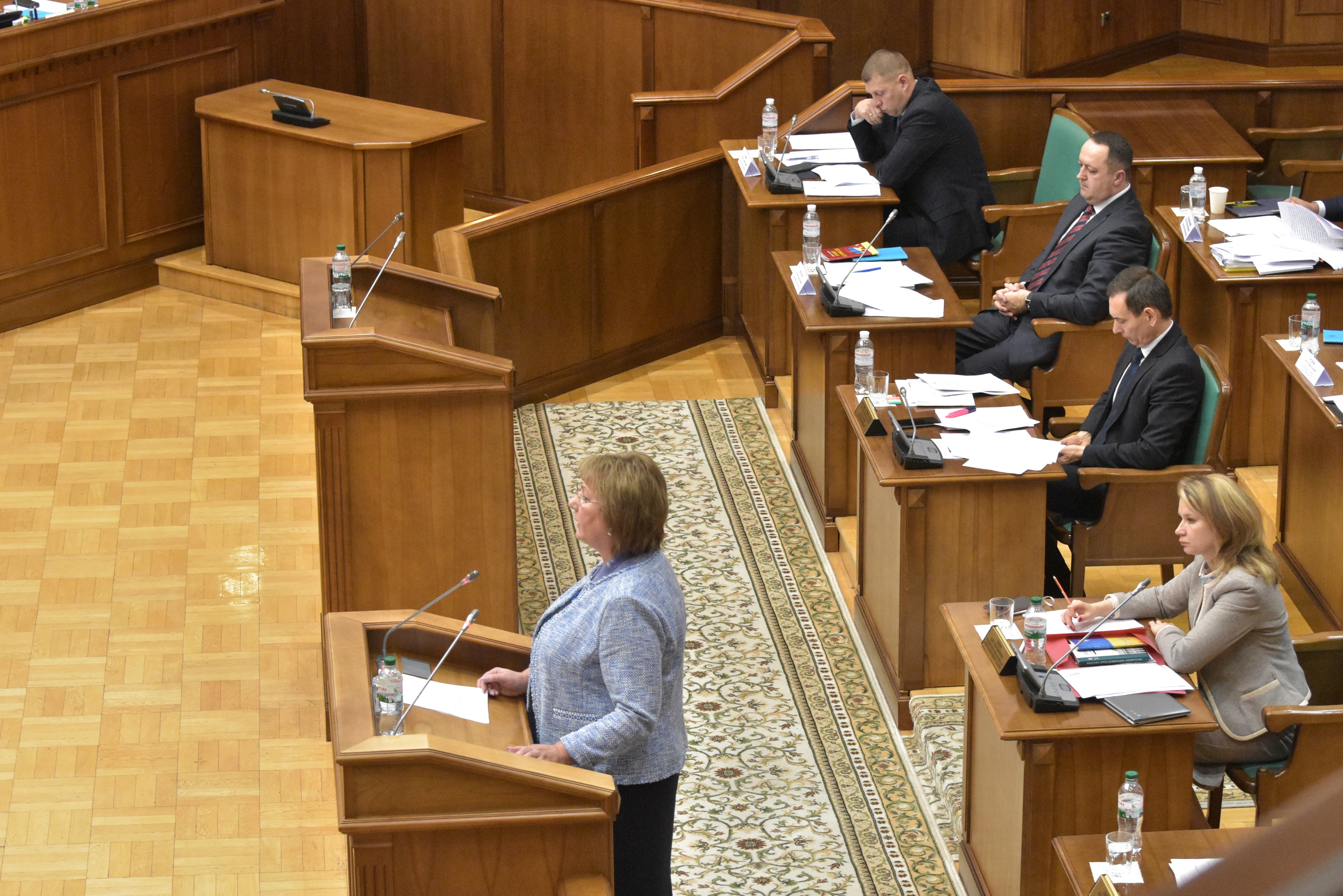
President of the Administrative Cassation Court within the SC has also put emphasis on other threats contained in the Law provisions regarding the HCJ activity and the issue of judges’ disciplinary liability. Particularly, he remarked that provisions on the possibility to consider disciplinary case without a judge also did not comply with the Constitution of Ukraine, since it undermined the judge’s right to protection. The same applied to the regulation on the possibility to inform judges about hearing of the HCJ Disciplinary Chamber only three days before the day of its holding; this violates the principle of independence and inviolability of a judge, as well deprives him/her of the possibility to prepare appropriately and to participate in the consideration of his/her case.
“This can have a negative impact on the judge's ability to protect himself effectively against the charges brought against him/her and makes the judge vulnerable to unwarranted persecution”, – Mykhailo Smokovych.
Judge of the SC Grand Chamber Tetiana Antsupova and judge of the Civil Cassation Court within the SC Vasyl Krat also participated in hearing of the Grand Chamber of the Constitutional Court of Ukraine on behalf of the Supreme Court and supported their colleagues.
The CCU Grand Chamber will continue its hearing on 21 January 2020.
